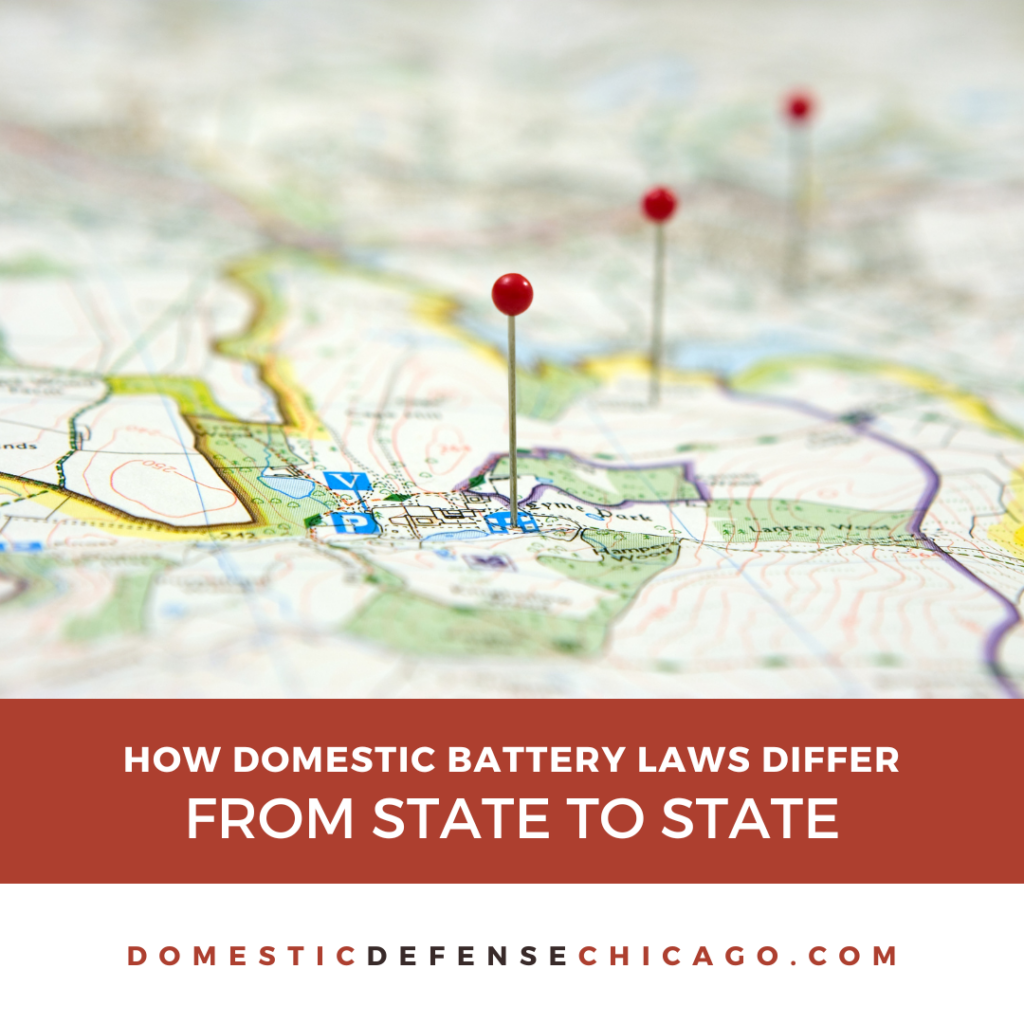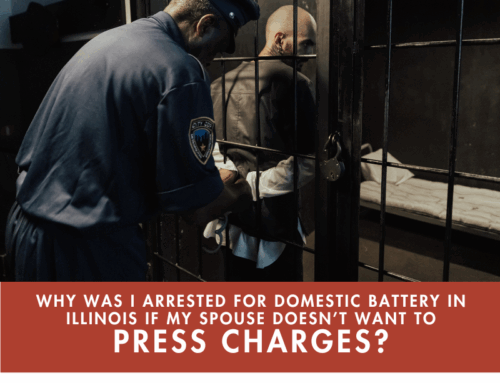Domestic battery laws can differ significantly from state to state. These variations include differences in how domestic battery is defined, the penalties imposed, and the processes used to handle these cases. If you’re facing charges or want to understand your rights, knowing the distinctions in laws across states is essential.
How Domestic Battery Laws Differ from State to State
This guide explains the following:
- How definitions of domestic battery vary
- Differences in penalties for domestic battery
- Variations in restraining orders and protective measures
- How evidence requirements differ
- Why consulting a local defense lawyer is critical
Here’s a closer look at each.
How Definitions of Domestic Battery Vary
The definition of domestic battery depends on state law, and what qualifies as an offense can vary widely. In Illinois, domestic battery typically involves physical harm, harassment, or the threat of harm against a family or household member. Other states may include emotional abuse or financial control under their domestic violence statutes.
Some states also define who qualifies as a “family or household member” differently. While Illinois includes spouses, former spouses, co-parents, and people in a romantic relationship, other states might expand this definition to include more distant relatives or even roommates. Understanding how your state defines domestic battery is critical to assessing the charges against you.
Differences in Penalties for Domestic Battery
Penalties for domestic battery vary significantly between states. In Illinois, a first offense is often classified as a misdemeanor, but repeat offenses or aggravating circumstances, such as the involvement of a weapon or severe injury, can elevate the charge to a felony. Other states may impose harsher or more lenient penalties based on their specific statutes.
For example, in some states, mandatory counseling or anger management classes are part of the sentencing, while others might emphasize jail time or steep fines. Additionally, certain states impose harsher penalties for cases involving children or incidents that occurred in the presence of minors.
Variations in Restraining Orders and Protective Measures
Restraining orders, also called protective orders, are another area where state laws differ. In Illinois, an order of protection can impose restrictions such as no-contact provisions, firearm surrender, or mandatory relocation from a shared residence. Other states might have different types of orders, such as temporary restraining orders (TROs), permanent restraining orders, or emergency protective orders, each with varying durations and restrictions.
The process for obtaining these orders also differs by state. In some states, protective orders are issued almost automatically upon filing a complaint, while others require a more thorough court hearing before granting such orders. Compliance with these orders is critical, as violations often carry severe penalties.
How Evidence Requirements Differ
The type and amount of evidence required to prosecute a domestic battery case can vary significantly between states. Some states rely heavily on physical evidence, such as injuries or damaged property, while others place more emphasis on witness testimonies or police reports.
In Illinois, prosecutors may use a combination of evidence, including digital communications, photos, and medical records, to build their case. Other states might permit different forms of evidence or have stricter rules about what is admissible in court. Understanding these nuances can make a significant difference in how your defense is structured.
Why Consulting a Local Defense Lawyer Is Critical
If you’re charged with domestic battery, working with a lawyer who understands your state’s laws is essential. A domestic battery defense lawyer can:
- Explain how local laws apply to your case
- Evaluate the evidence based on state-specific requirements
- Advocate for a reduction in charges or penalties
- Guide you through the legal process, including any protective orders
Each state has unique legal processes and penalties, so relying on generalized information can lead to misunderstandings. A local lawyer ensures that you’re equipped to navigate the legal system effectively.
Understanding how domestic battery laws differ from state to state highlights the importance of knowing your rights and responsibilities. By consulting a local attorney and familiarizing yourself with the laws in your jurisdiction, you can take the necessary steps to protect yourself and prepare a strong defense.
Do You Need to Talk to an Attorney About Domestic Battery Defense?
If you need to talk to a domestic battery defense attorney in Illinois, we’re here to help. Call us at 847-920-4540 now – we’ll be happy to give you a free consultation and talk to you about your options.







Leave A Comment
You must be logged in to post a comment.